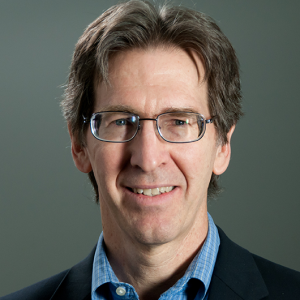Robert Hariman can’t seem to get out of the Midwest. He grew up in North Dakota, went to school in Minnesota, had his first academic appointment in Iowa, and has been at Northwestern since 2004. He likes Evanston and the Chicago metro area for its combination of big city amenities and egalitarian values. He loves Northwestern for many reasons, not least its commitment to both world class research and exceptional teaching.

Hariman has been active in all three areas of academic life: teaching, research, and service. While at Drake University, he was designated the Iowa Teacher of the Year (1990) by the Council for the Advancement and Support of Education. At Northwestern, his undergraduate courses include the study of problems of democratic speech in classical Athens, a survey of persuasive practices in contemporary visual culture, and a project-oriented study of environmental art and advocacy.
His graduate teaching is primarily devoted to courses in rhetorical theory, and it has included topical attention to photography and photojournalism, parody and other forms of political humor, and public emotions, among others. He also has taught in the MSC program, offering a core course in managerial ethics.
A primary focus of Hariman’s research has been on role of photography and especially photojournalism in public life. He and co-author John Lucaites built a research program that produced the books No Caption Needed: Photojournalism, Public Culture, and Liberal Democracy and The Public Image: Photography and Civic Spectatorship, as well as many shorter works, including the blog (now dormant but still online) Nocaptionneeded.com, which analyzed images in the news media. He also has been active in research in other areas, including the study of political judgment and a critique, with co-author Francis A. Beer, of the doctrine of political realism in international relations. His work has been translated into Arabic, Chinese, and French.
Hariman was no stranger to institutional service when he arrived at Northwestern, and since then has served in several different capacities. Beginning in 2007, he served for six years as Chair of the Department of Communication Studies. For much of the time subsequently, he was Director of Graduate Study for the degree in Communication Studies/Rhetoric and Public Culture. His service also included being Chair of the University Program Review Council and President of the University Faculty Senate.
Now he is stepping into the role of Director of Graduate Studies for the MSC program. “We live in interesting times,” he remarked, “which amplifies the significance of MSC’s focus on preparing students for organizational leadership.”
Hariman has been reviewing every aspect of the program through this lens. “Given our curriculum and faculty, we start in a very strong position. But the stakes are getting higher, and continued engagement with technological and social change and continued adaptability by both individuals and organizations is essential.”
“Furthermore, the purpose needs be more than near term success narrowly defined. Higher education should be teaching students how to be life-long learners, and how to both do well personally and contribute to building a better world.”
“I’m looking forward to working with our faculty, students, alumni, and other stakeholders so that we can continue to have engaged and productive learning experiences that will meet these goals. That is our mission. “